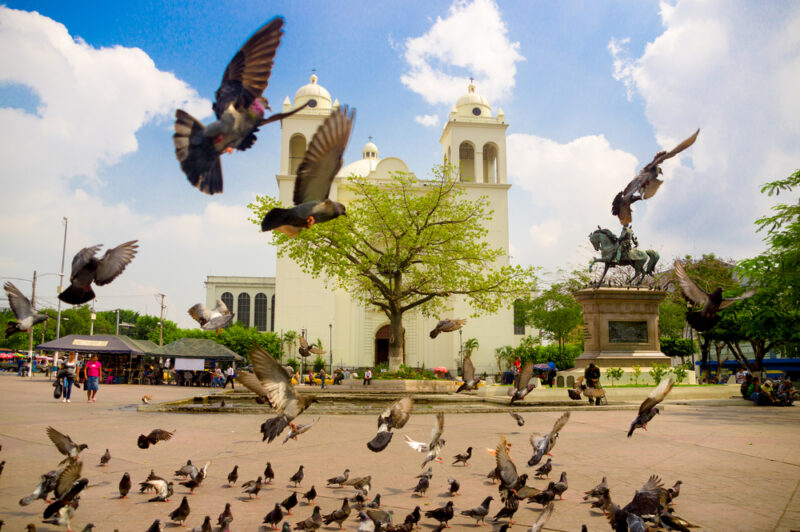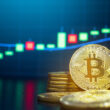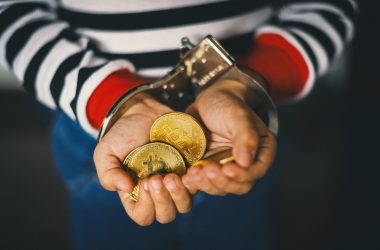For the first time in history, a county has made Bitcoin a national currency. On October 5th, 2021, El Salvador began a risky experiment that could rattle the economies of both the country and the world.
The President of El Salvador, Nayib Bukele, announced that the country has purchased a total of 550 Bitcoins as a way to bring more confidence to those in El Salvador. However, Bitcoin, now legally able to be used in El Salvador, took a sharp drop soon after on Tuesday. Currently, both the US dollar and Bitcoin are legal tender in El Salvador.
As a right-wing populist, Bukele announced his plan to introduce Bitcoin as national currency back in June of 2020. He also passed a law in the country stating that any “economic agent” must accept Bitcoin as payment, and citizens of El Salvador can even pay their taxes by using Bitcoin.
In order to hold the cryptocurrency, residents of El Salvador can download an app to their mobile device known as the “Chivo Wallet.” This is an app created by the government, and for those citizens who download it, they will get a gift: a $30 deposit of Bitcoin to their account.
Earlier, Bukele tweeted, “”The process of #Bitcoin in El Salvador has a learning curve. Every step toward the future is like this, and we will not achieve everything in a day, nor in a month, but we must break the paradigms of the past.”
How are Salvadorians Reacting to the News of a New National Currency?
Some of the citizens of El Salvador have certainly embraced the use of Bitcoin as the national currency, but others are not so crazy about the switch.
CNN interviewed several people including a baker, José Abraham Cerón. He is embracing the change and said it’s “not difficult to deal in Bitcoin.” However, a nearby business owner, Blanca Estela Ponce, says that she likes cash. She describes Bitcoin as, “…something new and we don’t have enough information about it.”
El Salvador Partners with Strike
In order to have an infrastructure to support the use of Bitcoin to this degree, El Salvador has partnered up with Strike, a digital finance company.
All cryptocurrencies, including Bitcoin, are held in a digital wallet instead of a bank account like fiat currency. This means that people who have less access to banks, such as those in poorer areas, can still access their finances via the app.
Not Everyone is Happy About This Switch
Some organizations in El Salvador strongly oppose this new law, and they are urging the government to repeal it immediately. Why? Because they believe that cryptocurrency is too volatile. Perhaps, they are correct.
Earlier this year, Bitcoin went through a dramatic crash after hitting almost $65,000 in April. By Tuesday, the day that El Salvador declared “Bitcoin Day,” the price was under $47,000 and falling.
The International Monetary Fund (IMF) also doesn’t think that this was a great idea. The organization gave an emergency loan to El Salvador in 2020, and the country is working on another loan, right now. However, IMF might not be on board due to the financial, legal, and economic issues that could be raised.
IMF Managing Director, Kristalina Georgieva, stated, “How do we know what we collect in taxes when bitcoin goes up and bitcoin goes down? How do we plan for expenditures? Remember in April, bitcoin crossed $65,000 and then it dropped almost half of it. That is a problem that the ministry of finance is going to be wrestling with. And it is not an easy one.”
Things aren’t looking much better for El Salvador, either. Back in July, Moody’s pushed the country’s debt rating deeper into the red stating “a deterioration in the quality of policymaking,” specifically making note of the adoption of the new legal tender, Bitcoin.
El Salvador, however, is banking on the fact that allowing the use of Bitcoin as legal currency will bring in new investments. Additionally, government officials are hoping to reduce commissions paid to send remittances from abroad.
WeInvests is a financial portal-based research agency. We do our utmost best to offer reliable and unbiased information about crypto, finance, trading and stocks. However, we do not offer financial advice and users should always carry out their own research.
Read More













